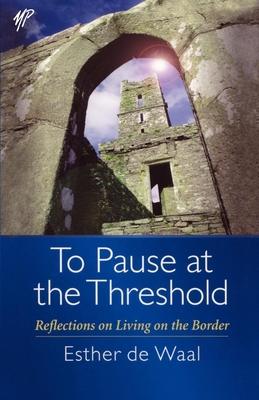"A threshold is a sacred thing," goes the traditional saying of ancient wisdom. In some corners of the earth, in some traditional cultures, and in monastic life, this is still remembered. But in our fast-paced modern world, this wisdom is often lost on us. It is important for us to remember the significance of the threshold. While it is certainly true that thresholds mark the end of one thing and the beginning of another, they also act as borders-the places in between, the points of transition. These can be physical, such as the geographical borders of a country; others, such as the spiritual border between the inner and outer world-between ourselves and others-are intangible.
In To Pause at the Threshold, Esther de Waal looks at what it is like to live in actual "border country," the Welsh countryside with its "slower rhythms" and "earth-linked textures," and explores the importance of opening up and being receptive to one's surroundings, whatever they may be.
"A threshold is a sacred thing," goes the traditional saying of ancient wisdom. In some corners of the earth, in some traditional cultures, and in monastic life, this is still remembered. But in our fast-paced modern world, this wisdom is often lost on us. It is important for us to remember the significance of the threshold. While it is certainly true that thresholds mark the end of one thing and the beginning of another, they also act as borders-the places in between, the points of transition. These can be physical, such as the geographical borders of a country; others, such as the spiritual border between the inner and outer world-between ourselves and others-are intangible.
In To Pause at the Threshold, Esther de Waal looks at what it is like to live in actual "border country," the Welsh countryside with its "slower rhythms" and "earth-linked textures," and explores the importance of opening up and being receptive to one's surroundings, whatever they may be.Paperback
$17.95